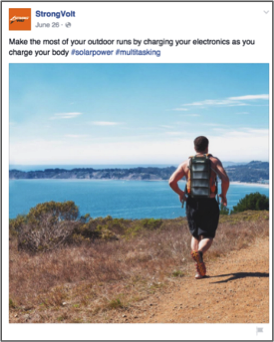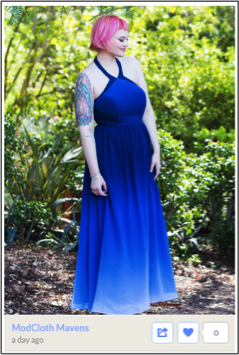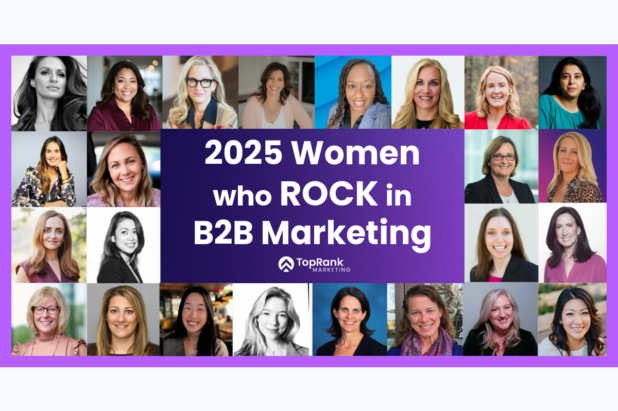
Content marketers are facing their most daunting challenge yet. We survived the content glut with solid, documented strategy. We have made great strides toward properly measuring and attributing our content marketing ROI. But the next big bad is even bigger and badder than those obstacles: It’s the Fearsome Social Media Algorithm.
The Algorithm Monster already turned our Facebook streams into trickles. Now Twitter and even Instagram are falling under its spell. The once mighty organic platforms are becoming increasingly pay-to-play. Can marketers beat these algorithm-based feeds to get our content to our audience?
Yes, we can. But we can’t do it alone. As the Lego Movie teaches us, everything is cool when you’re part of a team. With influencer marketing, you can form your own team to take on the Fearsome Algorithm, increase your organic reach, and create awesome content while building lasting relationships.
Influencer marketing is the current hot topic in marketing circles, and it’s not hard to see why. 51% of marketers believe that incorporating influencers into their marketing helps them reach customers. Those who do it well earn an average of $6.85 in media value for every dollar they spend. And the top 13% earn $20 or more.
So, what is influencer marketing? How do you put the pieces together to build something great?
Strap on your Master Builder goggles and let’s explore.
Definition of Influencer Marketing
Our CEO Lee Odden has defined influence marketing as, ‘Influencer Marketing is the practice of engaging internal and industry experts with active networks to help achieve measurable business goals.’
By incorporating influencers into your marketing strategy, you have the opportunity to partner with individuals with the potential to move your target audience to action, and promote content on your behalf. The incentive for influencers to work with you can be intangible (added credibility, promotion of their brand) or tangible (cash/booze/puppy slippers).
At TopRank Marketing, we view influencer marketing as the cultivation of long-term relationships. We seek to co-create content with influencers, rather than asking them to promote something they had no part in creating. Co-creation generally leads to higher-quality content that is more relevant to the influencer’s audience. It also creates buy-in for both parties, making influencers more likely to take pride in, and aggressively promote, the finished product.
The Purpose of Influencer Marketing
At its most effective, influencer marketing serves a purpose for everyone involved. Marketers gain credibility with, and exposure to, the influencer’s audience. The influencer gets to take part in creating content that delights their audience. And the audience gets great content they might not otherwise be exposed to, coming from someone they trust.
With TopRank Marketing’s strategy of cultivating influencer relationships, you can build a network of influencers with whom you can continually co-create projects. We’ve found that network rapidly expands to include potential clients as well—our first contact with many existing clients was co-creating content with them.
As influencer marketing becomes more popular, it’s increasingly important to be selective when choosing influencers and strategic in your outreach. See the Resources section below for advice on how to (and how not to) reach out to influencers.
Influencer Marketing Done Right
Here are a few strong examples from brands who excel at influencer marketing by strategically choosing their collaborators and co-creating remarkable content.
StrongVolt
Who is and isn’t an influencer changes depending on the audience you’re trying to reach. Neil Degrasse Tyson has a huge social media following, for example, but he wouldn’t be a great influencer for your artisanal peanut butter. He’s not associated with peanut butter; his audience isn’t following him for peanut butter tips; he’s not likely to want to promote your product, even if it is hand-ground by organic squirrels.
StrongVolt, a tech company that makes rugged, electronics-charging solar panels, made sure to choose the right influencers to appeal to their target audience. Rather than focusing on tech blogs who might review the product, or mommy bloggers with huge followings but low relevance, StrongVolt partnered with outdoor recreation bloggers. The result were eye-catching photos of their product being used the way it was meant to be used, demonstrating the utility of the product for the people it was designed to appeal to.

ModCloth
One way to identify influencers is to find them among your existing customers. User-generated content is a form of influencer marketing, and a powerful one, as ModCloth discovered.
Fashion company ModCloth invites its customers to submit pictures modeling their clothing, featuring the best shots in a gallery on the site. ModCloth gets stunning images of real people using their products:

And each image has like and share buttons that enable the submitter to earn recognition. The gallery lets ModCloth’s community find its own influencers—and ModCloth establishes relationships with the most popular, even naming new dress styles after bloggers who share content on their site. ModCloth a also works with GroupHigh* to identify fashion bloggers they can partner with.
LinkedIn Marketing Solutions took an interesting, calculated risk with influencer marketing last year: they stepped back and let two influencers collaborate with minimal intervention. The result is a stunning eBook, Attention Is a Currency, written by Brian Solis and illustrated by Hugh MacLeod.

This hands-off approach resulted in a heartfelt, visually expressive eBook that stands out from the crowd. The eBook was downloaded thousands of times, and ended up winning a 2016 Killer Content award for LinkedIn Marketing Solutions.
Influencer Marketing Resources
We view influencer marketing as an area of expertise at TopRank Marketing. Our CEO, Lee Odden, is the true hipster of the practice—he actually was doing influencer marketing before it was cool, and we have developed and refined best practices over nearly a decade of influencer marketing success. These posts will help get you started:
Check out these potential pitfalls before you reach out to influencers:
And finally, these posts can help you fine-tune your program once it’s off the ground:
Is your influencer marketing insufficiently awesome? Share your feedback in the comments.
Disclosure: LinkedIn is a TopRank Marketing client.
Header image via Shutterstock


